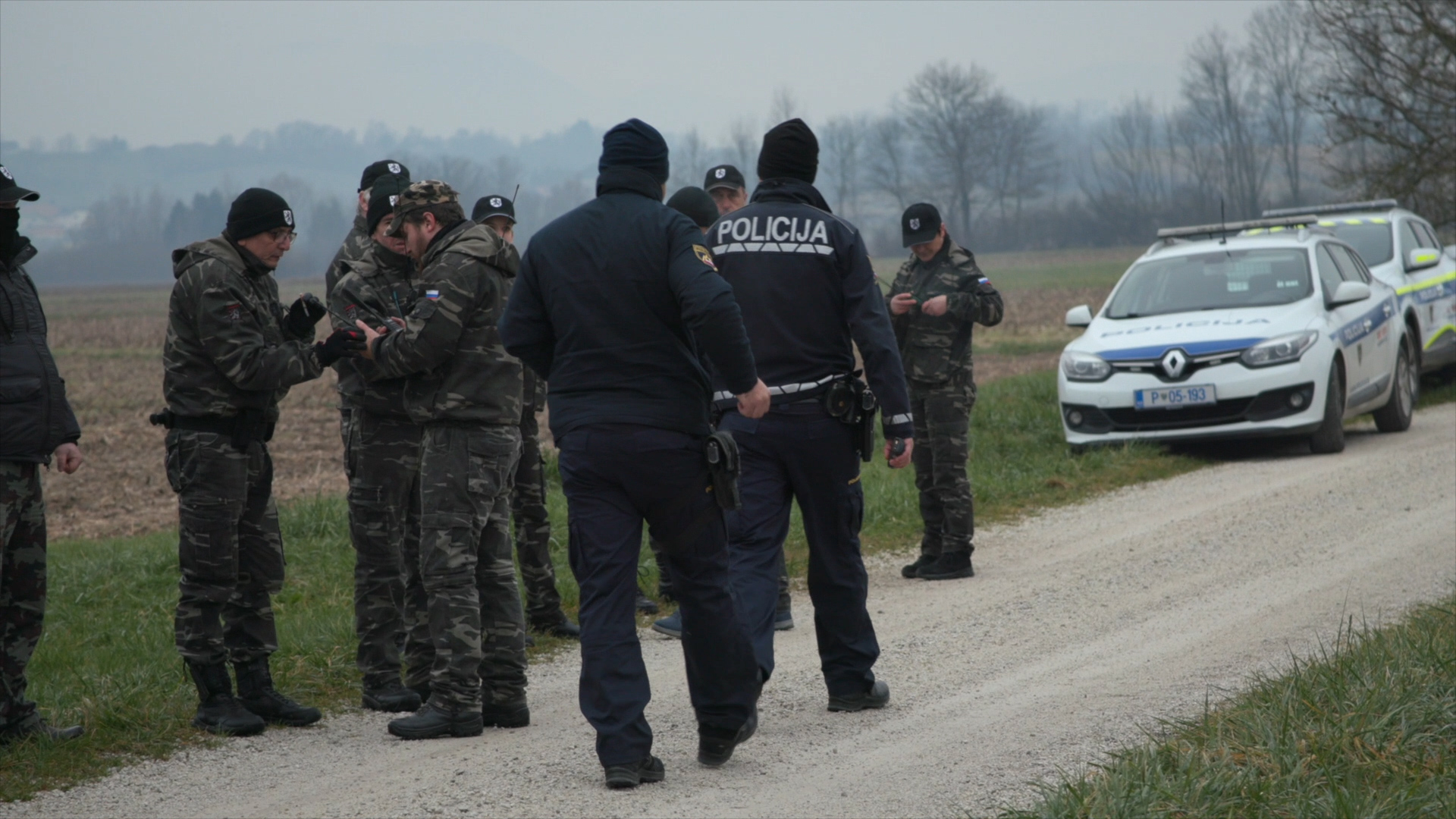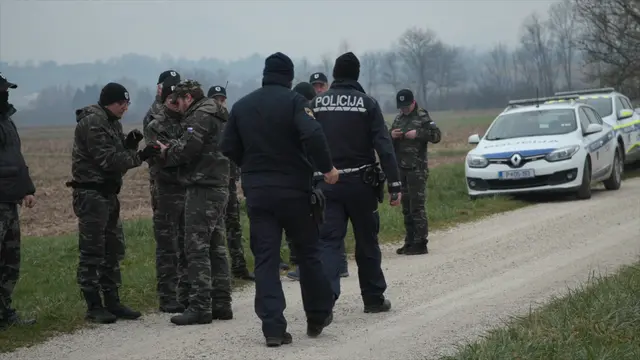02:37

Andrej Šiško, the leader of Slovenian paramilitary organization "Styrian Guard" was arrested on 4 January, when he tried to get close to Slovenian President Borut Pahor in the town of Slovenska Bistrica. He was arrested under a warrant that authorities issued several weeks previously, because he avoided serving the remaining part of his prison sentence. In what seemed like a publicity stunt, Šiško's supporters said he was deliberately arrested in public.
Just days before, we spent some time with his paramilitary colleagues from Styrian Guard. They were patrolling along the border with Croatia, close to the Slovenian village of Dobova, where a huge migrant camp was erected in 2015.
As an overall number of migrants moving through the so-called "Balkans Route" is significantly increasing in 2019, animosities towards them are flaring among the local population – and Styrian Guard has became one of the most prominent anti-migrant organizations.
At the border, we see a couple of dozen Styrian Guard members wearing the same uniforms. Some of them carrying big hunting knives and some police-style retractable batons. A few are wearing balaclavas that cover faces. They are aged between 20 and 60. The minute the lined up for final instructions on how to patrol the border, three police vehicles appear almost out of nowhere and officers start ID checks.
One of the Styrian Guard chiefs loudly instructs colleagues how to act: "Show collaboration with the police. We are not challenging their authority, we are not controlling the border. We just want to warn about the difficulties occurring because of illegal border crossings."
Everything goes without incident. The police soon leave and Styrian Guardsman start their short patrol along the barbed-wire fence. They walk in a single column, with five meters between them, inspecting any signs of illegal crossings from Croatia. We ask them why they are doing this.
"We are a small country of two million people. And we want to protect our country. And we, like a small nation, we need to stay here and survive. But how can we survive if we, for instance, receive in five years, maybe five million people of other cultures? How can we survive that? There will be no Slovenia anymore," Vlado Čehić from Styrian Guard tells us.
Yet, the authorities claim there is no need for organizations like Styrian Guard to do the job of police and that border protection works just fine. Until recently, Styrian Guard patrolled along the border with Croatia, carrying air-soft and replica assault weapons.
"Just imagine if a police officer comes across that kind of person in the field and that person refuses to follow the police officer's demands. What consequences can happen in this situation if he sees, on the other side, a person in uniform with something that looks like a weapon? It will easily result in the most serious consequences," Boris Rojs, head of public order section, Slovenian Police tells us.
That's why a new law is under consideration in Slovenia that will aim to curb organizations like this.
 简体中文
简体中文

